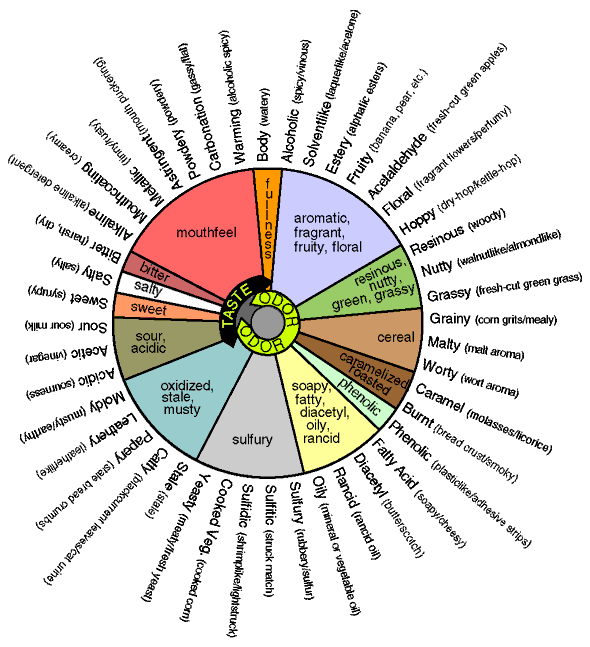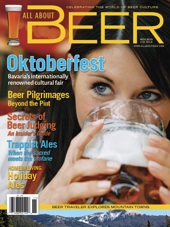I imagine you need no instruction on drinking beer. Happily slurping fresh pints at a favorite hangout is a joy that takes little practice to perform with confidence. After my own first half-dozen beers, I had it cold. But appreciating beer means understanding its complexities. You will need to develop a palate that is guided by solid information and honed by practice. You are going to have to learn to taste.
Beyond the “thinking” parts of your brain, learning to taste critically involves changes to the deep dark inner regions, a kind of mental training more common in monasteries than in public schools.

It will take some time and effort, but how could sampling beer ever be a burden? You may have to get out the books, take a few notes, develop a vocabulary, and become more familiar with your organoleptic system that you ever thought you would, but it will be worth it. In the end, drinking beer really is a lot more fun with a trained palate at your disposal.
Become skilled enough and you can pick out details of the recipe and process: hop varieties, malt types, fermentation temperature. With effort, you can read a beer like a book. Get really good and you can even pick up on the brewer’s little inside jokes. I tell the students in my beer style class that as brewer and artists, it’s their job to mess with people’s heads. As a taster you will understand what they’re trying to do to you.
I like to think of tasting as a meditative activity. Learning to taste critically requires a kind of transformation that is very different than absorbing a lecture or solving math problems. Beyond the “thinking” parts of your brain, this involves changes to the deep dark inner regions, a kind of mental training more common in monasteries than in public schools. It is unfamiliar territory to most of us. A seemingly impossible task at first, with proper knowledge and technique the mysteries open up, and you eventually arrive at a heightened awareness, without knowing exactly how or when these new powers were acquired. It’s trippy stuff.
Some of it can even happen without any particular intention. Your enthusiasm for hops, sensitivity to the clove-tinged subtleties of weissbier, or appreciation for the finer points of roasted malt can all occur with just a little information and a lot of pints. But to really develop as a taster, it helps to have some background on what to expect from of your organoleptic apparatus, and what to look for in the glass when you turn your x-ray vision towards a beer.











